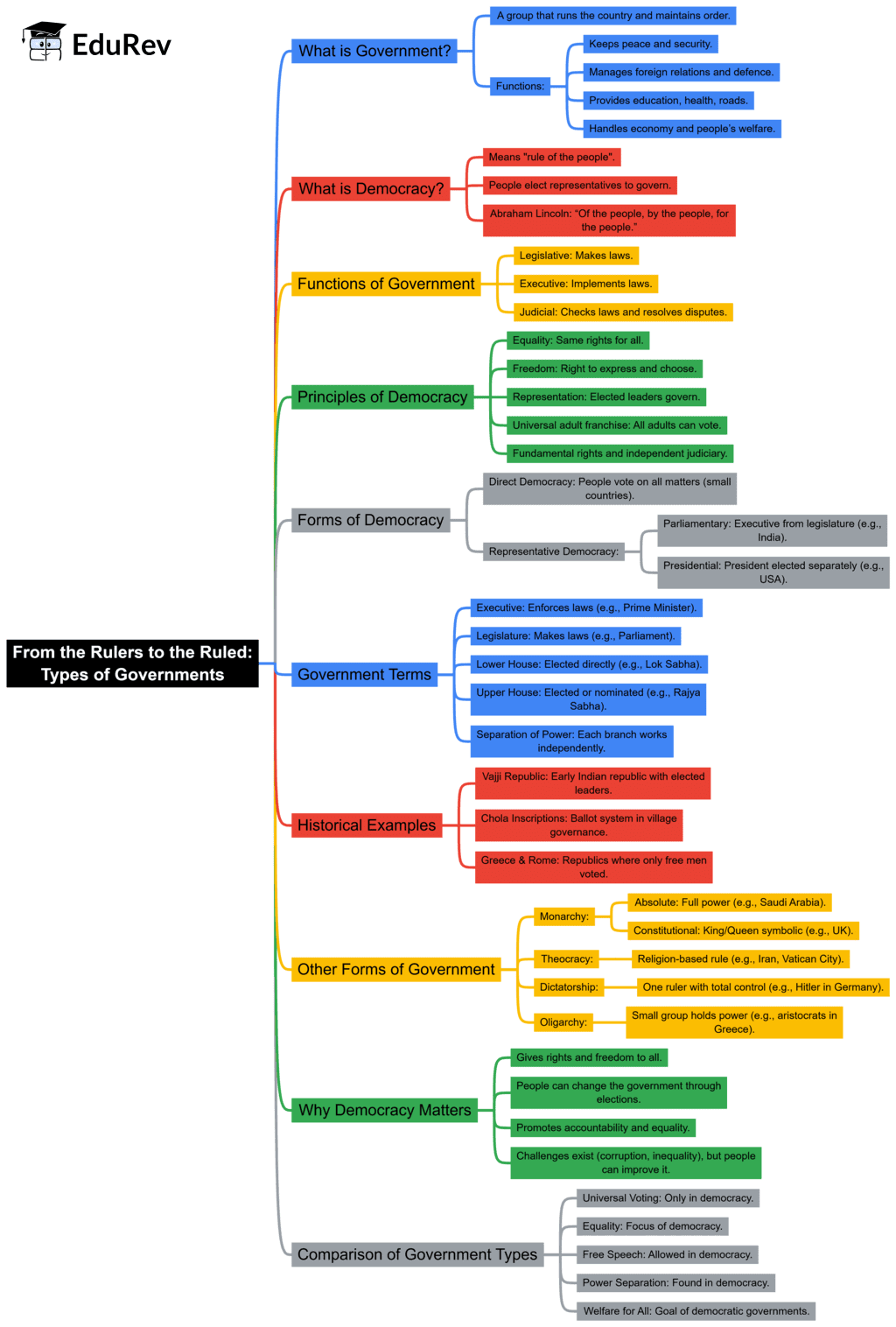Class 7 Exam > Class 7 Notes > Subject-Wise Mind Maps for Class 7 > Mind Map: From the Rulers to the Ruled: Types of Governments
Class 7 Social Science Chapter 9 Mindmap - From the Rulers to the Ruled: Types of Governments

The document Class 7 Social Science Chapter 9 Mindmap - From the Rulers to the Ruled: Types of Governments is a part of the Class 7 Course Subject-Wise Mind Maps for Class 7.
All you need of Class 7 at this link: Class 7
FAQs on Class 7 Social Science Chapter 9 Mindmap - From the Rulers to the Ruled: Types of Governments
| 1. What are the different types of governments discussed in "From the Rulers to the Ruled"? |  |
Ans. The article discusses various types of governments including democracies, monarchies, dictatorships, and theocracies. Each type has its own characteristics, with democracies allowing for citizen participation, monarchies often being ruled by a king or queen, dictatorships being controlled by a single leader, and theocracies governed by religious authorities.
| 2. How do democracies differ from dictatorships? |  |
Ans. Democracies are systems of government where citizens have the right to participate in decision-making, usually through voting in elections. In contrast, dictatorships are characterized by centralized control where a single leader or party holds significant power, often without the consent of the governed, limiting personal freedoms and choices.
| 3. What role does a constitution play in different types of governments? |  |
Ans. A constitution serves as a foundational legal document that outlines the principles and rules governing a country. In democracies, it protects citizens' rights and ensures accountability of the government. In contrast, in authoritarian regimes, constitutions may exist but often do not limit the power of the rulers or protect individual rights effectively.
| 4. Can you explain the term 'theocracy' and give an example? |  |
Ans. A theocracy is a form of government in which religious leaders control the government, and policies are often based on religious laws. An example of a theocracy is Iran, where the Supreme Leader is a religious figure who has significant authority over the state.
| 5. Why is it important for citizens to understand the type of government they live under? |  |
Ans. Understanding the type of government is crucial for citizens as it affects their rights, responsibilities, and participation in the political process. It helps them recognize their power to influence governance, understand their rights, and advocate for changes that align with their values and needs.
Related Searches

















